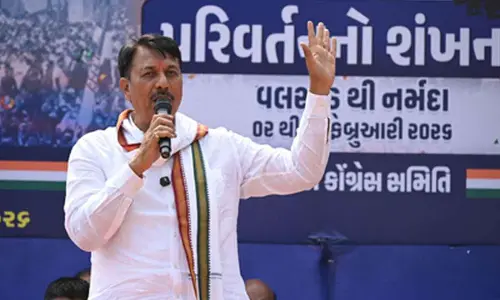How Can Women With Obesity Manage During Ramadan Fasting?

Ramadan is one of most important festivals for all Muslims. It also represents a month of fasting, when no solid , or even liquid, food is consumed.
Ramadan is one of most important festivals for all Muslims. It also represents a month of fasting, when no solid , or even liquid, food is consumed. Muslims who take part in the Ramadan fast, eat one meal ( Suhoor ) in the early hours of the day before the dawn and their next meal is only after sunset when they break the fast (Iftar). Almost all Muslims do follow the fast with exceptions being pregnant women, lactating mothers, very small children and people with severe illnesses where fasting could be dangerous to their health. The Ramadan fasting can be particularly a challenge to women with obesity.
It is important to see that both at the Suhoor and Iftar, that one does not go overboard with what one eats. This is particularly important for women with obesity, who do not want to gain extra weight during Ramadan.
Here are some suggestions for healthy eating during Ramadan, which can help to prevent weight gain:
Suhoor (Start of the fast)
Drink plenty of fluids. Remember it is summer and we tend to sweat more . Hence keep yourself well hydrated for the fast during the day. Water is best. Arabic fattoush salad with plenty of hydrating foods like cucumber or tomatoes , or fruits like watermelon ,make excellent choices. Starchy foods are needed to give you energy but you must choose whole grain and high fiber. Oats which can be taken as a porridge, helps to increase the fluid content of the diet, if one adds milk or water . Yoghurt can also be taken. If one is taking rice based items like idly or dosa or wheat items like chappathis, see that you add legumes and pulses which will help to increase the fiber and protein content. Eggs can give you protein , and also have a great satiety effect. Try to avoid salty foods or adding salt , as it can make you more thirsty. Also avoid caffeine containing drinks like coffee, tea or aerated cola drinks, as they increase the urine output, making you more dehydrated.
Iftar (Breaking of the fast)
When the fast is being broken in the evening after dusk, start with plenty of fluids. Water is the best although milk can also be taken. Avoid sugar loaded beverages as they are full of calories. Dates are taken traditionally as they are loaded with nutrients including iron, potassium, manganese , fiber, etc. Fruits are excellent. Soups are often taken to break the fast.
After the fast is broken, the dinner can consist of high protein foods: fish, chicken, lean meats, eggs and beans are all great. The amount of rice or chappathis can be limited to reduce the carbohydrate and calorie content of the food. Desserts and sweets which are loaded with calories, can be replaced with fruit.
See that the food is digested well and that you do not overeat. Keeping the stomach slightly empty is a good idea. Adding a post dinner walk , will not only help in digestion, but also to burn some calories. Try to get sufficient steps on the step counter on your phone. Ideal is 10,000 steps a day, but at least try for 6000 to 7000 steps a day.
List of healthy, lower calorie foods
1. Low fat zucchini labneh
2. Baked fish
3. Grilled lean meat.
4. Baked chicken (skinless) with sautéed vegetables
5. All varieties of salads
6. Avoid fried and processed foods, high in fat and sugar as well as fruit juices and soft drinks.
7. Chick peas and beans
8. Unsalted nuts
9. Brown rice or whole wheat, multi grain bread
10. Fruits like apple, guava, watermelon, papaya.
(The writer is a chairman and chief diabetologist, Dr Mohan's Diabetes Specialities Centre)














